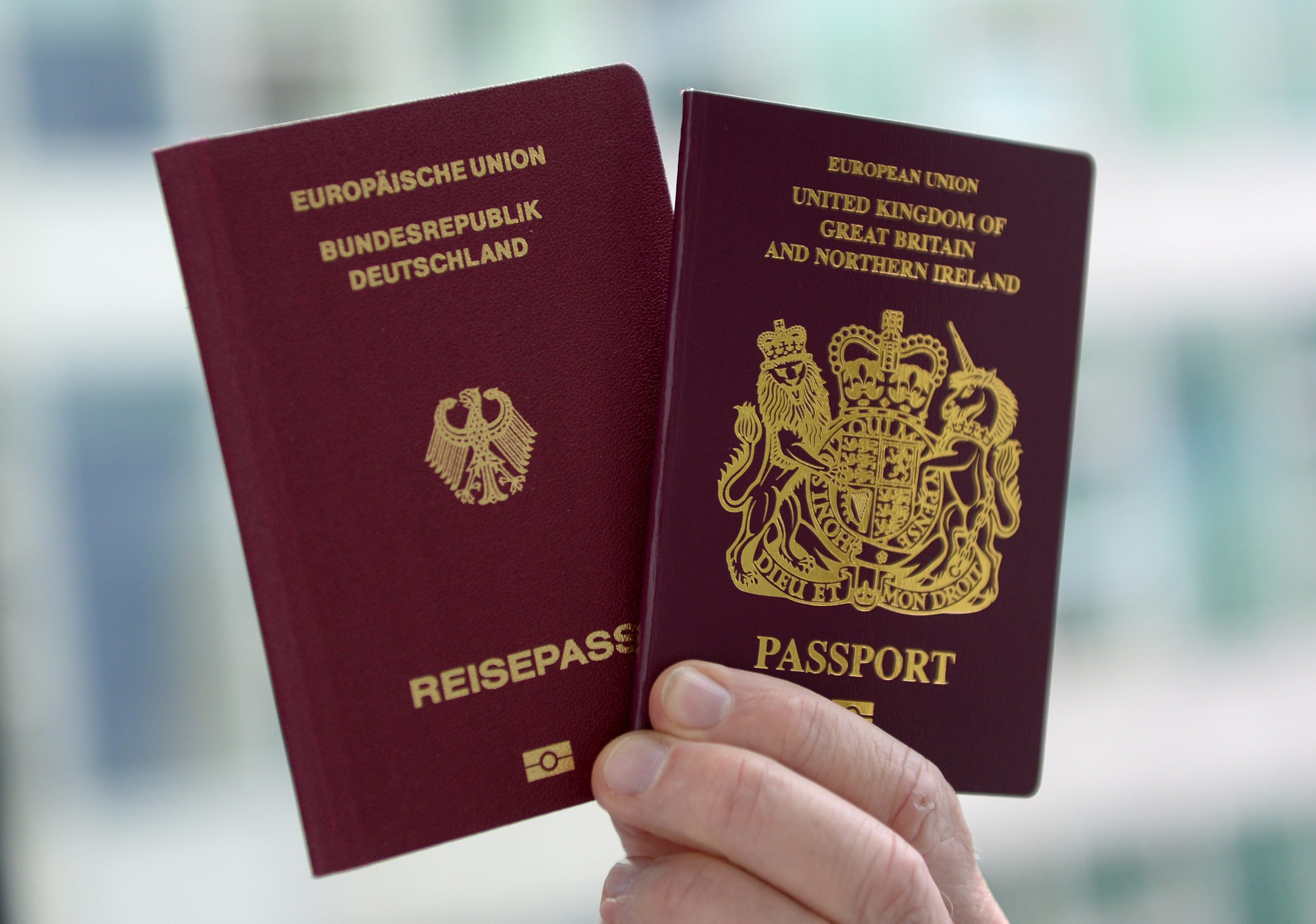The current draft would allow anyone naturalising as German to retain any other nationalities they currently have - whatever their previous citizenship - in contrast to the country's current restrictive policy on dual citizenship with its patchwork of exceptions.
EXPLAINED: Who can currently get dual citizenship in Germany?
The new law would also reduce the time an applicant for naturalisation needs to have been resident in Germany before applying for citizenship from eight years to five. Exceptionally well-integrated applicants could naturalise after as little as three years.
READ ALSO: What's the difference between B2 and C1 German for new fast-track citizenship?
The draft law - originally negotiated in 2021's governing coalition agreement between the Social Democrats, Greens, and liberal Free Democrats - has faced numerous delays.
After Cabinet agreed to it and passed it to the Bundestag last summer, parliamentarians with the governing parties shelved it to tighten up provisions barring those convicted of anti-Semitic crimes from becoming German - following the Hamas attacks against Israeli civilians on October 7th last year.

Members of the Bundestag with the three governing parties also ran into disagreements about whether people who recently claimed benefits should be able to naturalise as German, when, and what hardship exceptions should apply.
After parliamentarians on the Interior Committee reached an agreement just before Christmas, the governing coalition put the 80-page draft back on the Bundestag agenda for Friday afternoon.
The Local Germany will be following the debate and updating our homepage throughout Friday. You can also check recent articles in our German citizenship section for further background.
READ ALSO: Germany's dual citizenship law 'could be passed in January'
Christian Democrats to raise opposition in Parliament
The law isn't likely to pass without some final hurdles though. The opposition CDU, which has remained steadfastly opposed to allowing dual citizenship and reforming German nationality law, has proposed an amendment to the law that parliamentarians will have to discuss.
HISTORY: What's behind the push to reform dual citizenship laws in Germany?
Because it doesn't have a majority in the Bundestag to overrule the governing SPD, Greens, and FDP - the amendment is still likely to be defeated. However, it contends that the draft law ignores integration problems, including through its general allowance of dual citizenship.

The CDU's proposal would limit naturalisation to those who have been employed for the past two years and can demonstrate adequate pension provision. As the draft currently stands, an applicant for naturalisation will have had to have been employed - or otherwise able to provide for themselves without resorting to unemployment benefits - for at least 20 of the last 24 months.
The proposed CDU amendment would also require applicants to explicitly acknowledge Israel's right to exist and generally bar most criminals from naturalising.
Again though, it's quite likely the amendment is defeated. While the preamble decries dual citizenship, it does not propose removing provisions that allow it.
OPINION: Critics need to wake up to the reality of dual citizenship in Germany
What happens next?
Once the Bundestag passes the draft law, the legislation moves on to Germany's upper legislative chamber - the Bundesrat - which represents the federal states.
Although the government doesn't believe the Bundesrat has the power to block the draft, it must still clear deliberations in the chamber. Although this is mostly a formality, the Bundesrat only sits once a month - with the next sittings scheduled for February 2nd and the March 22nd.
Once the draft clears the Bundesrat, the Federal President, currently Social Democrat Frank-Walter Steinmeier, must then sign it into law - although this is largely a ceremonial, constitutional function.
Following that, the civil service may have an implementation period for adjusting to the new law. Although it's not for certain exactly how long this will take, parliamentarians The Local has spoken to estimate this may last until April - with the new law taking effect from then on.
TIMELINE: When will Germany push through the new dual citizenship law?

Comments